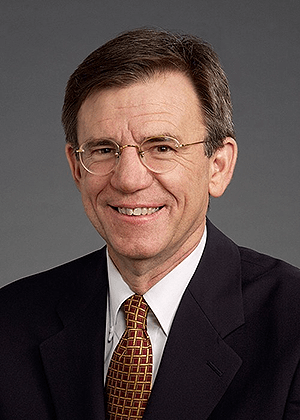
Kenneth L. Koch, MD
Professor & Chief, Section on Gastroenterology & Hepatology
Wake Forest School of Medicine
Winston-Salem, NC
March is National Colorectal Cancer Awareness Month and I would like take this occasion to share some thoughts with you about the importance of screening for this disease.
When I see my patients waiting to be screened for colon cancer, I often congratulate them for making such an intelligent decision—the decision to have their screening colonoscopy! Screening colonoscopies give us the opportunity to find benign polyps that we can safely remove. I go on to tell our patients, “No one needs to die from colon cancer anymore.”
We know that by undergoing regular screening colonoscopies at the appropriate ages, colon cancer can be eliminated because we can detect and remove adenomas before they develop into malignant adenocarcinomas. In many cases, we detect colon cancers in the early stages when the cancer is still asymptomatic, still localized. Our partners, the colorectal and general surgeons, can cure these cancers.
Many of my patients who are undergoing their first screening colonoscopy, work here at Wake Forest Baptist Medical Center. To these patients, I frequently say that “our goal should be that no Wake Forest Baptist Medical Center employee will ever die of colon cancer.” They will not die of colon cancer because 100 percent of our employees will be screened at the appropriate times and that precancerous polyps will be removed and colon cancers prevented.
As gastroenterologists, we should do all we can to promote awareness of the importance of colon cancer screening at our workplaces. Here at Wake Forest Baptist Medical Center, we are working with Action Health—our employee health promotion group within our hospital system—and our community outreach professionals to promote Colon Cancer Awareness Month throughout our hospital and our city. In fact, I would go so far as to say that our larger goal should be that no one in our city of Winston-Salem will die of colon cancer because our citizens—regardless of race, gender, insurance or other issues—all understand the importance of colon cancer prevention and have access to screening services.
Finally, GI professionals like us should work with our gastroenterology societies in our respective states to support increased activities that emphasize the importance of colorectal cancer screening at the state level. Perhaps one day, we can say that in North Carolina (and in the 49 other states), no citizen will die from colon cancer because we are screening 100 percent of those who need such screening. Through awareness and access, we can eradicate colorectal cancer!
Dr. Kenneth L. Koch is not a paid consultant of Cook Medical.